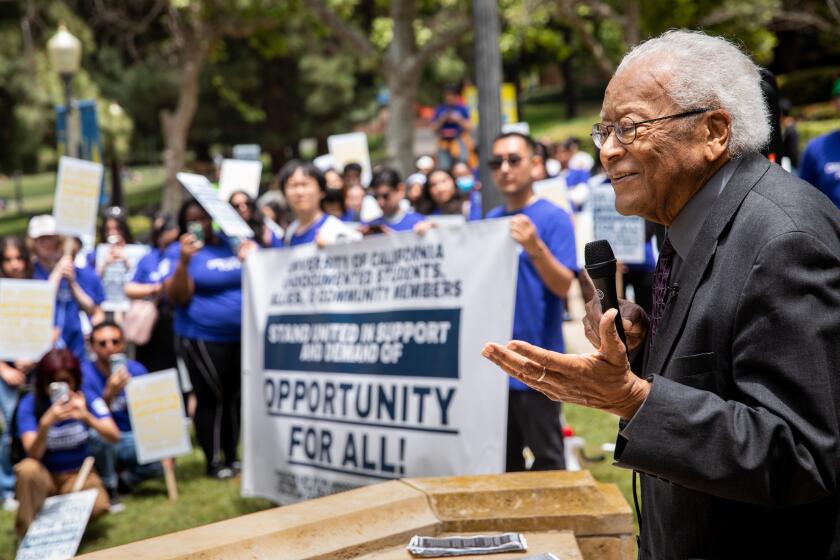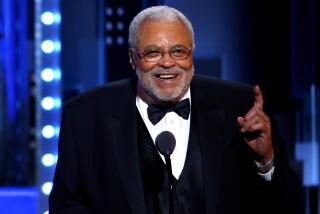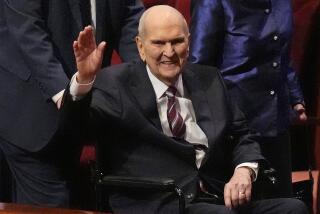Opinion: James Lawson and the enduring lessons of nonviolence

- Share via
James M. Lawson Jr., who died last week, was a legendary hero of the civil rights movement; the pastor, for 25 years, of Holman United Methodist Church in Los Angeles; and, in L.A. Mayor Karen Bass’ words, “a man who changed history.”
But to me, Jim Lawson was, first and foremost, an incredible teacher.
I met Jim when I was hired as the producer/co-host of his national cable TV talk show, “Lawson Live,” for a decade starting in 1995. We were perhaps an unlikely pairing: He was a Christian minister, I was a practicing Buddhist, and we were generations apart. Yet over and over in our long friendship, it was he who expanded my way of thinking.
Lawson was recruited by the Rev. Martin Luther King Jr. Lawson spent decades in Los Angeles working as a pastor, labor movement organizer and professor.
Take the time we were preparing for a show we had roughly titled, “What happened to the civil rights movement?”
Jim said: “Don’t call it that.”
I was confused. “What else should I call it?” I asked.
“Call it the justice movement,“ he said, because what was at stake in the 1960s went far beyond civil rights.
He cited the goal of the Southern Christian Leadership Conference, which was to “save the soul of America.” The boycotts, sit-ins and freedom rides targeted segregation and voting rights, but in Jim’s view, their deeper purpose was to challenge the kind of toxic thinking that devalued human beings to the point that genocide, enslavement and, later, Jim Crow laws were possible.
He was a literal teacher in those years, training a generation of justice movement activists in civil disobedience. He went to prison rather than be drafted to fight in the Korean War, and he went to India to study Gandhian nonviolence so he could bring its strategies to America. When we watched Lawson and his students occupy lunch counters in the South, they saw discipline in the face of danger, crucially grounded in the philosophy of nonviolence.
James Lawson, the godfather of the civil rights movement, is turning 95. A new generation of leaders in Los Angeles and beyond aspire to carry on his legacy.
Instead of giving in to anger, he insisted, we must respect the inherent dignity and nobility of those with whom we disagree. We must listen. We must make connections rather than instigate separation, recognizing that violent thoughts, words and actions only incite more violence. He related his own experience with a young man who spit on him during a protest. Jim wiped his face and asked the young man about his motorcycle. A conversation began; conflict was averted.
That kind of respectful encounter, for Jim, was the only path that made transformation — changing hearts and minds — possible. When you meet anger with grace, he explained to me and other interviewers, you can see with your own eyes a person’s “conversion,” a shift “as if walking from the dark to the light.”
Jim believed the “beloved community” could be achieved. He maintained that the unrest we witness in America was evidence of the “poisons of racism, sexism, violence and plantation capitalism.” Yet when white supremacists publicly showed their faces, and polls indicated that people were discouraged about race relations, he speculated that out of the tumult, “perhaps we are actually witnessing the unraveling of American apartheid.” He cautioned that it would be a “messy affair” because too few in leadership seemed ready to make a change.
Jim did not doubt the power of one person’s positive legacy. He never met my father-in-law, but when my husband’s dad died, he asked if he could attend the service in Pittsburgh. After he arrived, he gathered information from family and friends, and when he spoke at the service, he called on my father-in-law’s six grandsons to stand. Jim told them he had discovered that their grandfather lived by simple values: being a good human being, protecting his family and working toward the betterment of his community. Would they follow in their grandfather’s footsteps? They agreed.
Finally, Jim taught me what authenticity looks like when no one is watching. When my mother was in a coma in a Los Angeles hospital, he visited her bedside regularly, sitting with her at night whenever he could. We only learned of this kind act after she passed. He had quietly become her pastor in her time of need. That was the kind of person he was.
How should we honor a man who changed history? By emulating his courage, passion for truth and insistence on justice and peace. “I know,” Jim said, “the negative forces cannot prevail.” In these days of worry and fear, his life of action and optimism can teach us all.
Bonnie Boswell is an executive producer and reporter. “Bonnie Boswell Reports” is the lead-in to the “PBS Newshour” on PBS SoCal and at PBS.org.
More to Read
A cure for the common opinion
Get thought-provoking perspectives with our weekly newsletter.
You may occasionally receive promotional content from the Los Angeles Times.












